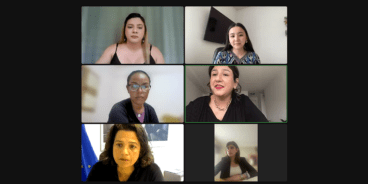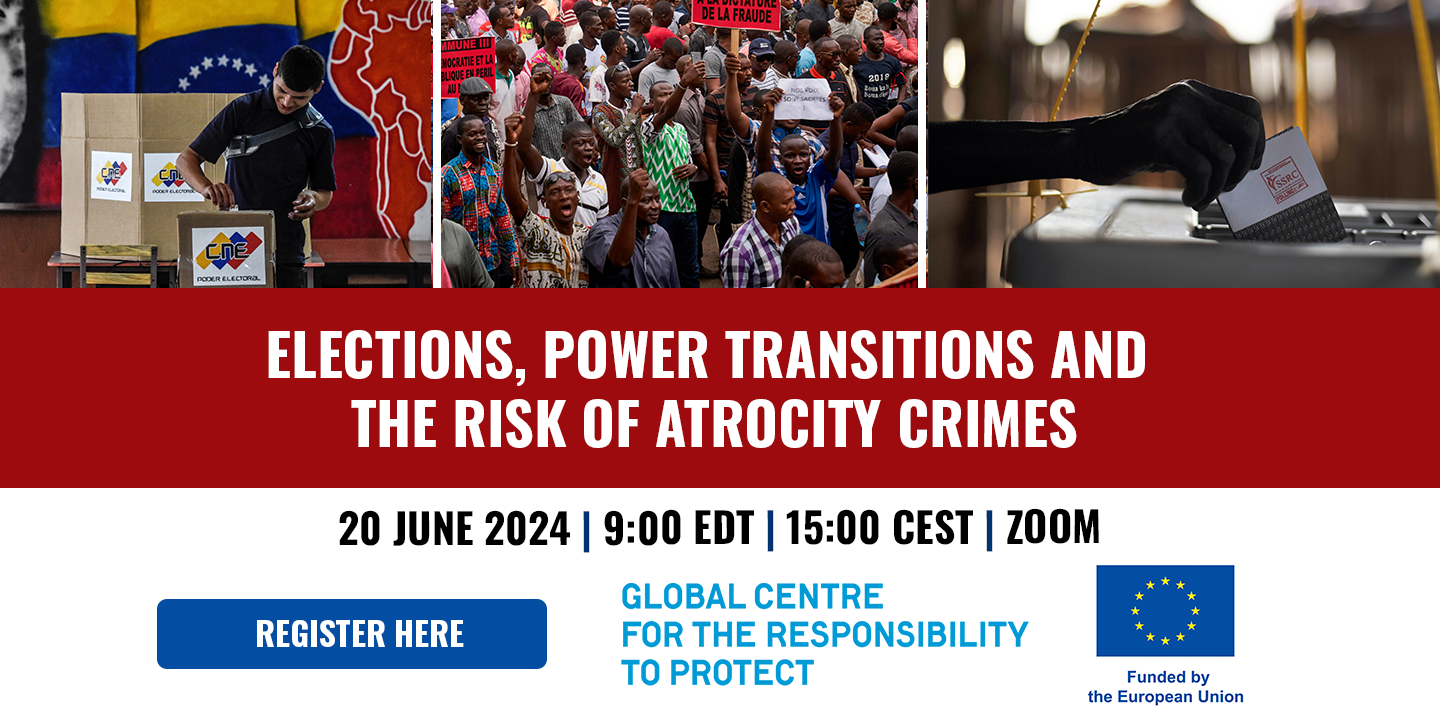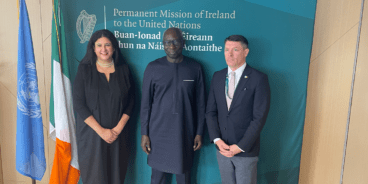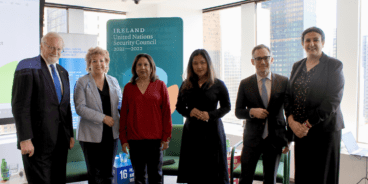

Elections, Power Transitions and the Risk of Atrocity Crimes
On 20 June the Delegation of the European Union to the United Nations in New York and the Global Centre for the Responsibility to Protect co-hosted this event, entitled “Elections, Power Traditions and the Risk of Atrocity Crimes.” During 2024 more than 60 countries around the world are due to hold major elections. Genuine and credible elections present a crucial opportunity to reaffirm democratic norms and the rule of law and enable people to have their voices heard. However, all too often elections turn from a positive expression of people’s democratic will into situations of increased political violence and polarization, which can degrade human rights protections, deepen divisions and aggravate historical grievances or perpetuate the politics of exclusion and marginalization. The restriction of civic space, targeting of opposition parties and candidates, use of hate speech, incitement and misinformation by political leaders in campaign speeches, disenfranchisement of voters in “high risk” or conflict areas and systemic or structural discrimination against marginalized or minority groups, among others, occur all too commonly during election cycles. Likewise, a lack of commitment to peaceful transfers of government authority – or the deliberate obstruction and postponement of elections following military coups – may also pose a threat to civilians by compounding numerous risk factors for atrocities.
This one-hour event helped identify early warning signs and context-specific risk factors throughout the electoral process — from campaigning to the post-election period — and provided recommendations for the effective prevention, mitigation and response to election-related violence and possible atrocity crimes. The conversation focused on the unique risks and circumstances surrounding elections and transitions of power in South Sudan, Venezuela and elsewhere.
Related Content


The Annual Evans-Sahnoun Lecture on the Responsibility to Protect, 2023
